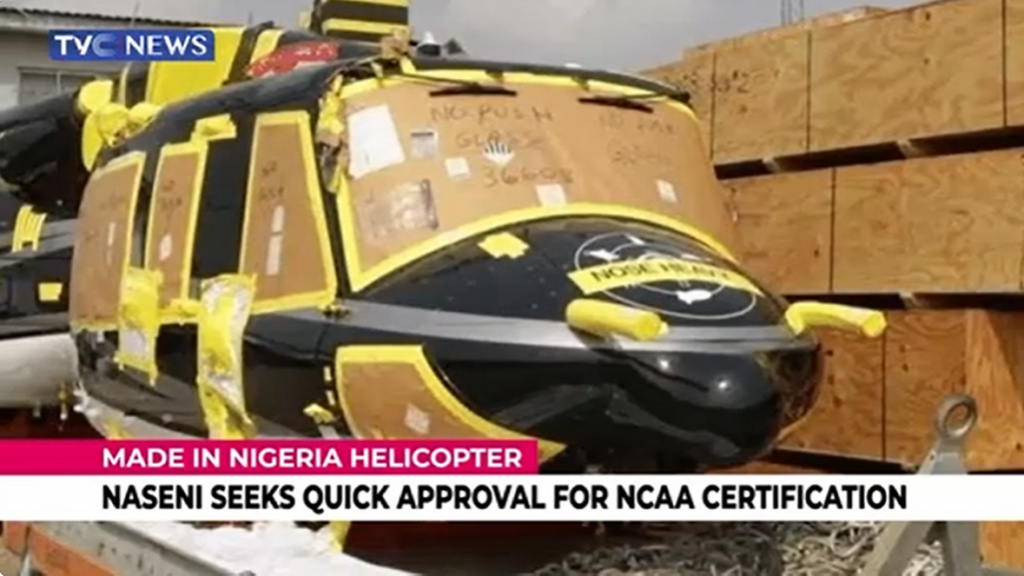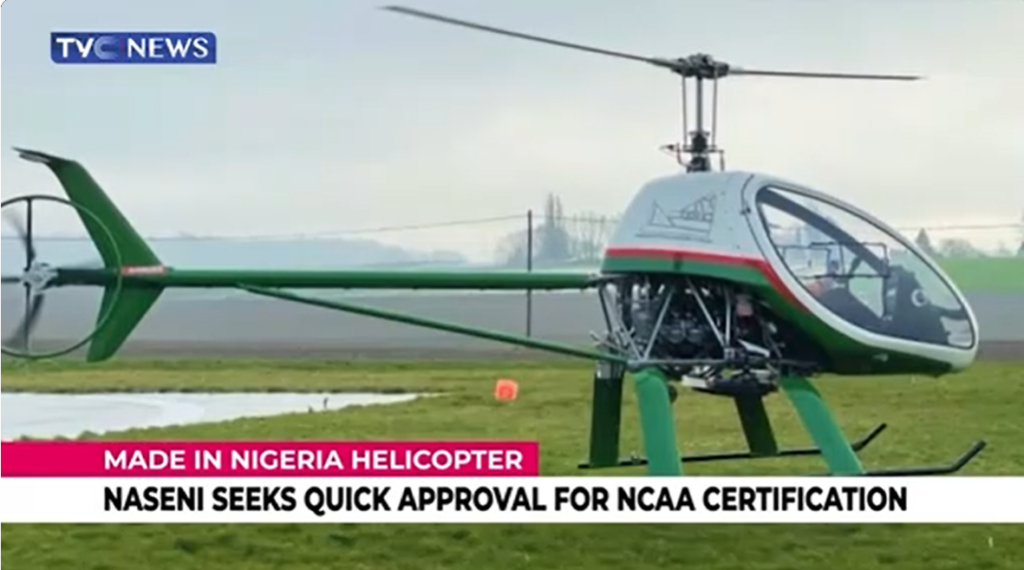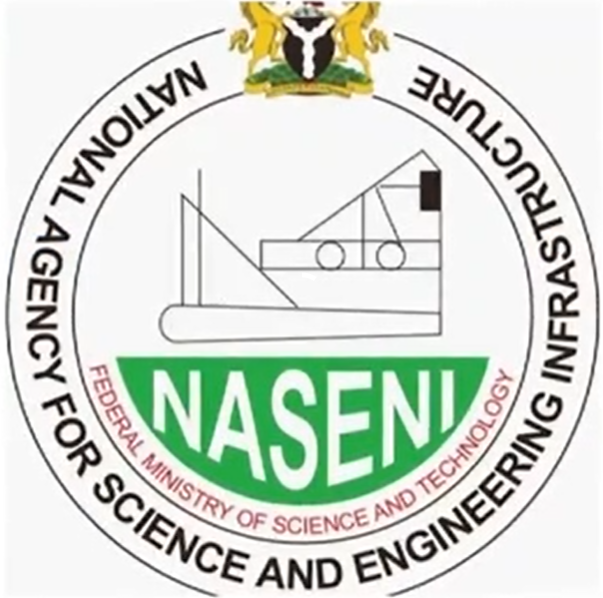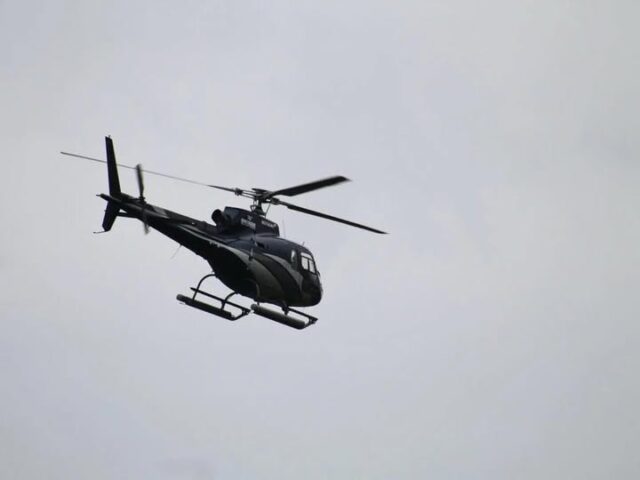Nigeria’s first locally manufactured helicopter is in its final development phase and will soon take to the skies, according to the National Agency for Science and Engineering Infrastructure (NASENI).
Speaking at a Focus Group Engagement in Kaduna, Engr. Kareem Aduagba, Project Manager at NASENI’s Aeronautics and Air Vehicle Development Institute, highlighted the progress made on the aircraft, which will be officially named the “Nigerian Chopper.”
The engagement, organized by NASENI, gathered key stakeholders—including inventors, manufacturers, government officials, and industry experts—to discuss policies aimed at advancing Nigeria’s technological and industrial growth.
“We are not reinventing the wheel but pioneering local aviation technology. Our projects include the Made-in-Nigeria helicopter and Unmanned Aerial Vehicles (UAVs), which have been developed from the ground up,” Aduagba explained.

- Boko Haram IED Explosion on Borno Road Kills Eight, Wounds Others
- EFCC Opens Probe of 24 Nigerian Young Men Detained in Ghana over Suspected Cybercrimes
- Former CBN Governor Emefiele Attempts To Regain Forfeited Abuja Estate; Court Dismisses the Attempt
- King Sunny Ade’s House Divided as Daughter Alleges he has Been Kidnapped; Other Family Members Deny Claim
- You Can Gather All Governors But If Nigerians Reject You, it is Over — El-Rufai Tells Tinubu
- Woman Leaves Husband after Falling in Love with ChatGPT
He further revealed that NASENI has acquired aircraft components from advanced economies in Semi Knock Down (SKD) and Complete Knock Down (CKD) forms, which are being assembled and modified with local engineering expertise.
“As we approach the final stages of development, the first test flight of the Nigerian Chopper will be conducted soon,” he added.

NASENI’s Vision for Innovation and Industrial Growth
Engr. Abdulfatai Ambali, Head of NASENI’s Manufacturing Services Department at the Hydraulic Equipment Development Institute in Kano, emphasized the agency’s renewed focus on innovation, commercialization, and collaboration under its current leadership.
“Many Nigerians are unaware of NASENI’s contributions, but under the leadership of Executive Vice Chairman Khalil Suleman Halilu, we are prioritizing stakeholder engagement and community impact,” Ambali stated.
He stressed that reducing Nigeria’s dependence on foreign technology is critical, as many of NASENI’s innovations are already being deployed across various industries.
Calls for Local Support and Industrial Advancement

Facilitator of the program, Saleh Kwaru, urged Nigerians to support homegrown industries, noting that economic growth depends on patronizing locally made products.
“We must maximize our resources and reduce reliance on foreign goods. Strengthening our local industries will boost economic development,” he said.
Similarly, Yusuf Suleman, Acting Zonal Coordinator for the North West Small and Medium Enterprises Development Agency of Nigeria (SMEDAN), praised the event for addressing challenges related to the quality and finishing of Nigerian products.
“Innovation and modern technology are essential for increasing acceptance of local products. This kind of engagement will help improve production, create jobs, and drive industrial growth,” Suleman added.
Watch video below:












